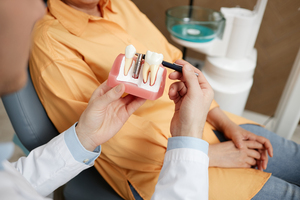Key points
- Tetanus is a serious disease caused by a toxin produced by bacteria found in soil, dust, and manure, which can lead to fatal complications.
- The tetanus vaccine uses an inactivated tetanus toxin to stimulate the immune system and create antibodies, requiring booster shots for maintained immunity.
- There are different types of tetanus vaccines for various age groups and needs, including Tdap, Td, and DTaP, all of which offer protection against tetanus.
- Most people should get a tetanus booster shot every 10 years, with exceptions for certain wounds and injuries, and the vaccine is widely available at clinics and pharmacies.

If you’ve ever cut yourself on rusty metal or stepped on a nail, you’ve probably heard someone mention getting a tetanus shot. But what exactly is tetanus, how does the vaccine work, and who needs to be vaccinated? Whether you’re a parent, an adult due for a booster, or simply exploring your vaccination options, this article breaks down everything you need to know about the tetanus shot — from the types of tetanus shots to side effects and when you should get one.
Tetanus is a serious, potentially deadly disease — but it’s also completely preventable with the right vaccine. Let’s take a closer look at how you can stay protected.
What is tetanus and why is it dangerous?
Tetanus is caused by a toxin produced by Clostridium tetani, a type of bacteria commonly found in soil, dust, and manure. It enters the body through breaks in the skin —often via puncture wounds, burns, or deep cuts.
Once inside, the bacteria can release a toxin that affects the nervous system, leading to painful muscle contractions, especially in the jaw and neck. This symptom is why tetanus is often called “lockjaw.” In severe cases, tetanus can cause breathing difficulties, seizures, and even death. The Centers for Disease Control and Prevention (CDC) notes that without treatment, up to 30% of tetanus infections are fatal.
It doesn’t spread from person to person but develops quickly after exposure, and the best way to protect yourself is through proactive vaccination.
How does the tetanus shot work?
The tetanus shot doesn’t contain live bacteria. Instead, it uses inactivated tetanus toxin (known as a toxoid) to safely stimulate your immune system. When you get vaccinated, your body learns to recognize the toxin and produce antibodies against it. So if you’re exposed to the real bacteria later — through a wound, for example —your immune system is already prepared to fight it off, preventing the disease from taking hold. This immunity doesn’t last forever, though. That’s why booster shots are necessary to maintain protection over time.
Types of tetanus vaccines
There are several versions of the tetanus shot, each designed for different age groups or needs. The three most common types of tetanus vaccine in the United States are:
- Tdap (Tetanus, diphtheria, and pertussis): This vaccine is given as a booster to teens (around age 11–12) and adults. It also helps protect against whooping cough (pertussis).
- Td (Tetanus and diphtheria): A routine booster given to adults every 10 years. It doesn’t contain the pertussis component.
- DTaP (Diphtheria, tetanus, and pertussis): Administered to children under age 7 as part of the standard childhood immunization schedule.
Each of these vaccines helps protect against tetanus, but the differences lie in the age group and whether additional diseases are covered.
Who should get a tetanus shot?
Almost everyone should be vaccinated against tetanus at some point. Here’s a breakdown of who needs it and when:
- Children: The CDC recommends five doses of the DTaP vaccine at ages 2 months, 4 months, 6 months, 15–18 months, and 4–6 years.
- Teens and Adults: Around age 11–12, a single dose of Tdap is recommended. After that, adults should receive a Td or Tdap booster every 10 years.
- Pregnant Individuals: A Tdap shot is recommended during each pregnancy, ideally between weeks 27 and 36, to protect both the mother and newborn.
- Anyone With a Wound: If you haven’t had a booster in the last 5 years and experience a deep or dirty wound, you may need a tetanus shot immediately.
If you’re unsure about your vaccination history, you can consult your primary care provider or visit an urgent care center for guidance.
When do you need a tetanus booster?
As a general rule, the CDC recommends that most people get a tetanus booster shot every 10 years. However, there are exceptions:
- Wounds and Injuries: If you have a puncture wound, burn, or other high-risk injury and your last tetanus shot was more than 5 years ago, you should get a booster immediately.
- Uncertain Vaccine History: If you can’t remember the last time you were vaccinated, it’s safer to get the shot. The vaccine is considered low-risk, and it’s better to err on the side of caution.
Keeping your immunization record up to date is the easiest way to avoid emergency decisions after an injury.
Tetanus shot side effects and what to expect
Like most vaccines, the tetanus shot can cause mild, short-lived side effects. Most people recover quickly with no complications, but common side effects include:
- Soreness, swelling, or redness at the injection site
- Mild fever
- Fatigue or feeling achy
- Headache
In very rare cases, serious allergic reactions can occur. These might include difficulty breathing, hives, or swelling of the face and throat. If you experience these symptoms, seek emergency care immediately.
If you're concerned about side effects or have a history of allergic reactions, you should consult your healthcare provider before getting vaccinated.
Where to get a tetanus shot
Tetanus shots are widely available and don’t typically require a special appointment. You can get one at:
- Urgent care clinics
- Primary care offices
- Local pharmacies (like CVS or Walgreens)
- County or city health departments
For fast, same-day care, Solv can help you find and book a tetanus shot appointment near you. Just search “tetanus shot near me” or use Solv’s provider locator to find a clinic in your area.
Find a tetanus shot at a clinic near you
Tetanus is dangerous, but it's entirely preventable with timely vaccination. Whether you’re due for your 10-year booster, recovering from an injury, or making sure your child is protected, don’t wait to take action.
With Solv, you can quickly find urgent care clinics, pharmacies, or primary care offices offering the tetanus shot near you. Book a same-day appointment now and stay one step ahead of preventable illness.
FAQs
What is tetanus and why is it important to prevent it?
Tetanus is a serious, potentially fatal disease caused by a toxin produced by a bacteria commonly found in soil, dust, and manure. It can enter the body through breaks in the skin, leading to painful muscle contractions, breathing difficulties, seizures, and in severe cases, death. It is important to prevent tetanus because it develops quickly after exposure and doesn't spread from person to person, making proactive vaccination the best form of protection.
How does the tetanus vaccine work?
The tetanus vaccine uses an inactivated tetanus toxin to stimulate your immune system. When vaccinated, your body learns to recognize the toxin and produce antibodies against it. If you're exposed to the real bacteria later, your immune system is already prepared to fight it off, preventing the disease from taking hold. However, this immunity doesn't last forever, which is why booster shots are necessary to maintain protection over time.
Who should get a tetanus shot and when?
Almost everyone should be vaccinated against tetanus. Children should receive five doses of the DTaP vaccine at various stages before they turn 7. Teens and adults should receive a single dose of Tdap around age 11-12, followed by a Td or Tdap booster every 10 years. Pregnant individuals should receive a Tdap shot during each pregnancy, ideally between weeks 27 and 36. If you haven't had a booster in the last 5 years and experience a deep or dirty wound, you may need a tetanus shot immediately.
What are the side effects of a tetanus shot?
The tetanus shot can cause mild, short-lived side effects such as soreness, swelling, or redness at the injection site, mild fever, fatigue, or feeling achy, and headache. In very rare cases, serious allergic reactions can occur. If you experience symptoms like difficulty breathing, hives, or swelling of the face and throat, seek emergency care immediately.
Where can I get a tetanus shot?
Tetanus shots are widely available and can be obtained at urgent care clinics, primary care offices, local pharmacies like CVS or Walgreens, and county or city health departments. You can use Solv's provider locator to find a clinic in your area that offers tetanus shots.









